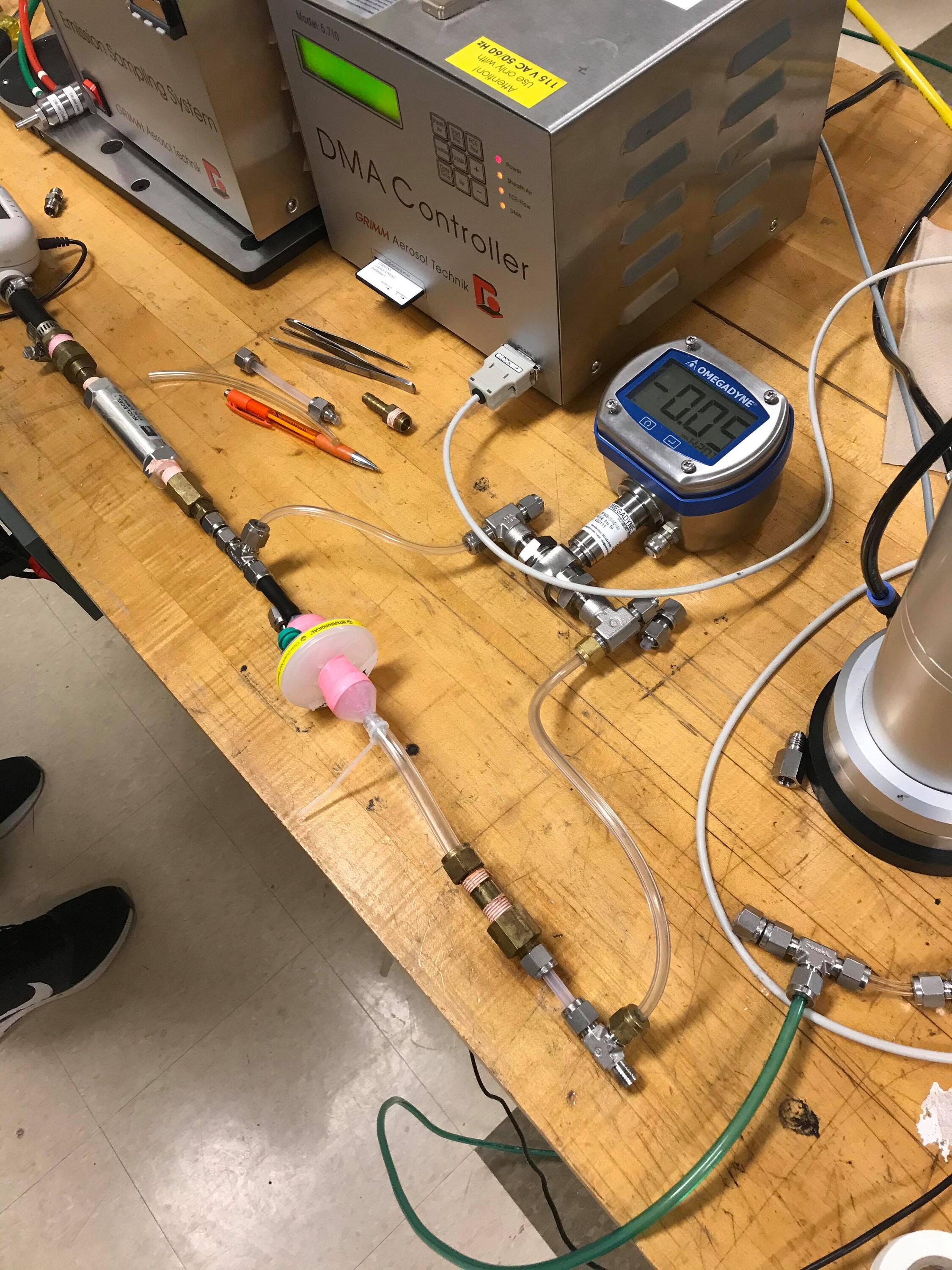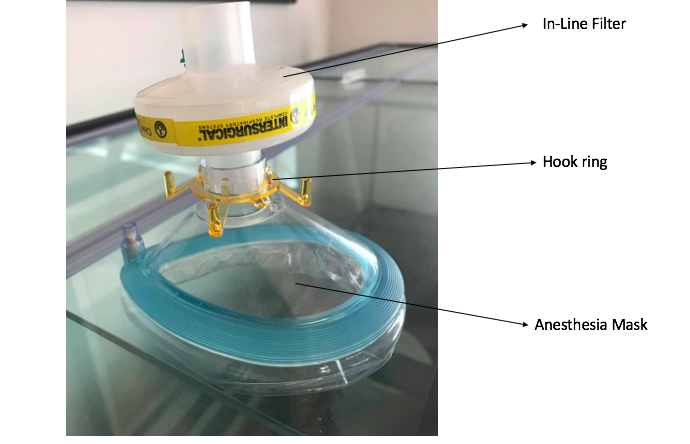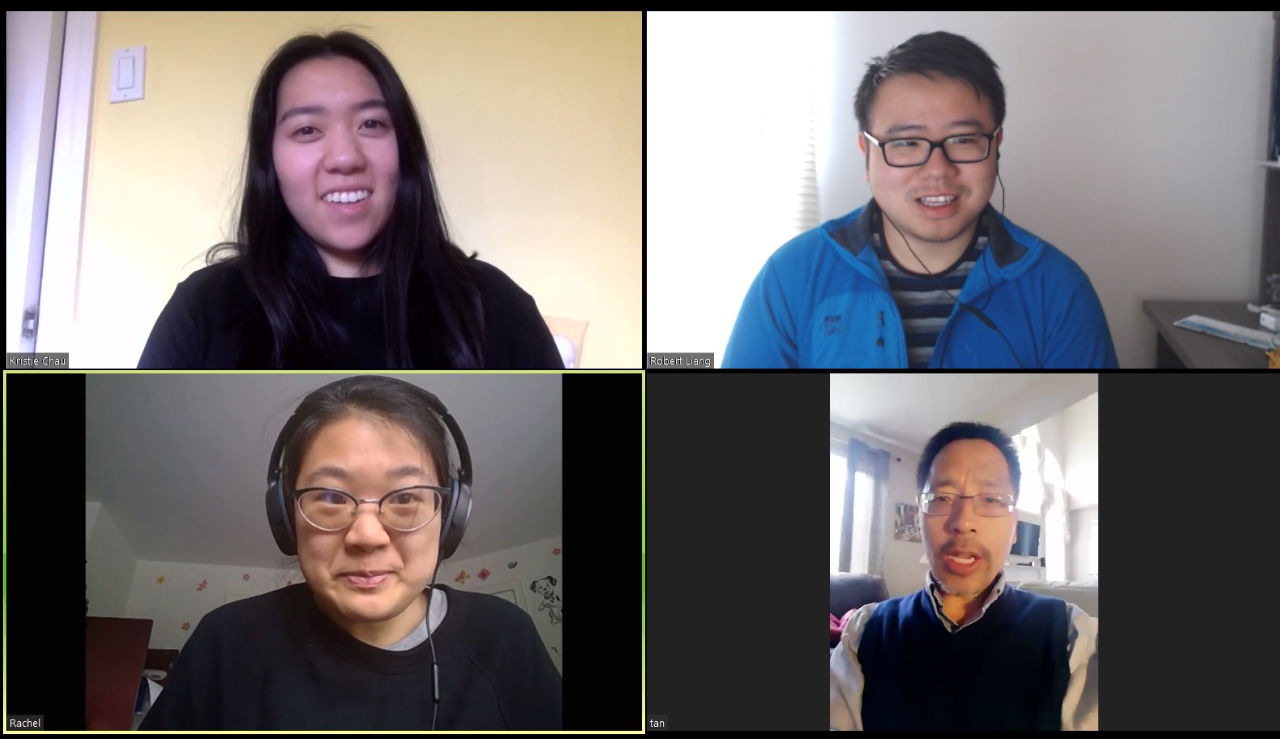University of Waterloo developing N95 mask alternative by using existing equipment to keep healthcare professionals safe
Researchers are currently testing the combination of three items, typically found in hospitals, that can be assembled in minutes by healthcare professionals, to address the N95 mask shortage.
The creator, Rachel Tyli, a current University of Waterloo Mechanical Engineering graduate student, assembled a team of Professors and researchers and is testing the feasibility of using a CPR mask, an in-line filter and a hook ring to create personal protective equipment (PPE) to ideally prevent healthcare workers from breathing in bacterial or viral particles, while still allowing ventilation.
“We are quantitatively testing and benchmarking data for masks to ensure they suit the needs of healthcare professionals,” explains Tyli. “We are not currently claiming this product is better than an N95. If N95s are available, we urge healthcare professionals to continue to choose N95s. However, for N95 unavailability this may be a reasonable alternative.” The product has not been tested nor qualified by Health Canada, but the team is confident the data will show this design will have better filtration and better protection than disposable procedure masks or cloth masks.

Image: The test set-up for gathering data.
Tyli and the team are continuing to test, STATMask (the name they have given to describe the units), and will be publishing and reporting the data. “There are ideas of alternatives that have been open-sourced; however, few of them have undergone testing. Testing is what we bring to the table.” Tests include quantitative, user, and occupational health tests as well as filtration and facial fit studies to verify the efficacy of the mask.

Image: The combination mask’s three main components: (1) an anesthesia mask, (2) an in-line ventilation filter and (3) a hook ring to attach straps.
Tyli and the team of volunteers face some challenges as they work together while isolating at home and following University protocols during the COVID-19 crisis. Tyli, the daughter of two healthcare professionals, says, “she couldn't just sit at home and not do anything while hospitals send out pleas for mask donations. As an engineering program graduate, I decided to tap into my skillset, knowledge, and network of like-minded professionals. I brought together a team of experts and young people with technical backgrounds in medicine and engineering to come up with a design for an alternative mask.”
Tyli approached Adrian Gerlich (her supervisor) and Chao Tan, Professors in Mechanical and Mechatronics Engineering, for preliminary feedback and expertise and then sourced a team of volunteer researchers, including help from Maryam Razavi, MME PhD student, Brian Li, (UWaterloo alumnus, SYDE ‘09), cardiologist and founder of non-profit MasksForCovid, Alan Soong (UWaterloo alumnus, SYDE’09) and Jackie Lee, (UWaterloo alumnus, SYDE ’06), Founder of HireMyFriends.com to provide expertise and advice across various areas of product development, mechanical design and marketing/fundraising.
Team Members
Robert Liang , Post Doctorate Fellow at Centre for Advanced Materials Joining, Maryam Razavi, PhD Candidate at Green Energy and Pollution Control Research Lab, Pablo Enrique, 3D Printing/Additive Manufacturing Lead, PhD Candidate at Centre for Advanced Materials Joining, Kristie Chau (MBBSCh BAO from Royal College of Surgeons, Ireland, Jeffrey Sixt, MASc. Candidate, Multi-Scale Additive Manufacturing, Gurkaran Basra, University of Waterloo Alumnus 2019.

Clockwise from the top: Kristie Chau, Robert Liang, Chao Tan, Rachel Tyli
Support & Funding
The team is looking for funding and support. Currently, all financial contributions for this project have been made using personal funds by the team.
This is a volunteer project and many of the financial contributions have come from within the team. However, the team has been incredibly fortunate to have support and guidance from the following organizations:
Materials, time and/or lab equipment:
- Centre for Advanced Materials Joining (CAMJ)
- The Research Lab for Green Energy & Pollution Control
- Multi-Scale Additive Manufacturing (MSAM) Laboratory
- South Unionville Oral and Maxillofacial Surgery
- Advice and in-kind contributions
- Masks for Covid
- Labour and distribution for long term care facilities
- Mobilizing Masks for Health Care Providers
The team is currently looking for the following help:
- Financial contributions from individuals or from industry
- Local hospital support for user testing and input
- Occupational health teams to help with fit testing
- Donations of supplies for testing - specifically from oral health surgeons or medical cosmetic practitioners who have equipment, but are not currently using it
- They are open to the input from health care workers, occupational health, or any experts who would like to contribute their time and expertise
If you can help or would like to contribute, please contact Rachel Tyli at rs2li@uwaterloo.ca.
* As a member of the engineering team, Tyli also works with Li on the Snorkel Mask Retrofit Project addressing COVID-19 mask shortages, helping with regulatory approvals, documentation, materials processing, sterility assurance, and analyzing testing data.